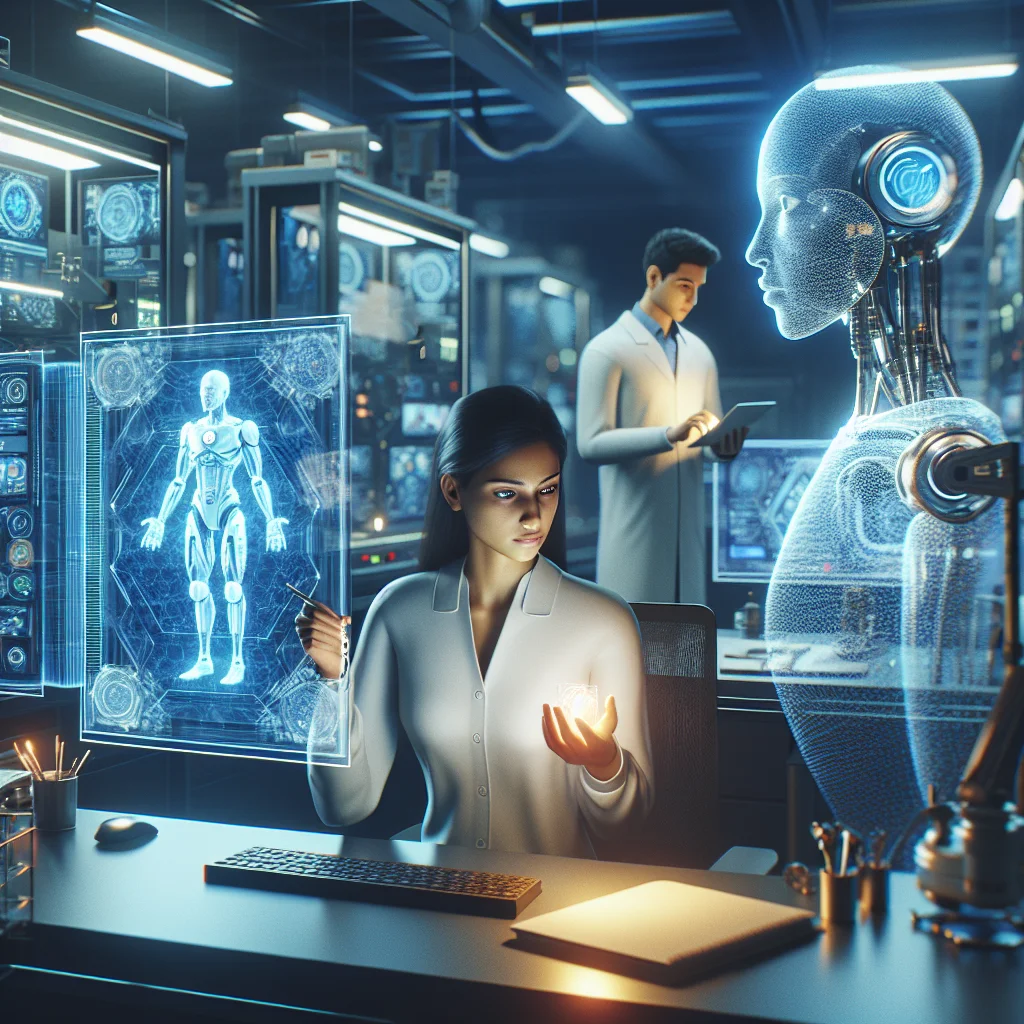Exploring Breakthroughs in AI Research and Innovation Today
April 26, 2025

As we navigate through 2025, artificial intelligence continues to push the boundaries of technology, leading to groundbreaking research and innovation. With applications ranging from healthcare to finance, AI is not only transforming business practices but also societal interactions. This article delves into the most significant recent advancements in AI research and explores their implications.
State of AI Research in 2025
The landscape of AI research has evolved remarkably within just a few years. With an estimated growth rate of over 30% annually, AI continues to become more sophisticated, driving innovations that tackle complex problems. Leading research institutions and tech companies worldwide are establishing dedicated centers to explore AI’s potential, focusing on areas such as machine learning, natural language processing, and computer vision.
Key Breakthroughs in Machine Learning
Recent advancements in machine learning have been game-changers. One notable development is the introduction of large-scale transformer models, such as GPT-4 and beyond, which have surpassed previous benchmarks in language understanding and generation. These models not only improve chatbots and virtual assistants but also enhance creative writing, coding assistance, and even educational tools by providing contextually relevant feedback and personalized learning pathways.
Additionally, automated machine learning (AutoML) tools have democratized AI technology, allowing non-experts to develop reliable AI models with minimal coding knowledge. This accessibility is fostering innovation across various sectors, as more individuals and organizations can leverage AI to solve unique challenges.
Advances in Natural Language Processing
Natural language processing (NLP) has reached new heights in 2025. AI-powered systems can now understand and generate human-like text with unprecedented accuracy. Technologies like sentiment analysis and contextual understanding allow businesses to analyze customer feedback and market trends in real-time, enhancing decision-making processes.
Furthermore, multilingual models are breaking down language barriers, enabling seamless communication in multinational environments. This capability is particularly valuable in global customer support, where instant translation can improve client relations by providing personalized assistance in multiple languages.
Breakthroughs in Computer Vision
In the realm of computer vision, recent innovations have played a pivotal role in various industries, such as healthcare, retail, and security. AI systems can now accurately process images and videos, enabling functions such as cancer detection through early-stage radiology analysis and in-store analytics that measure consumer behavior.
For instance, the integration of computer vision in retail environments allows businesses to optimize inventory management and enhance customer experiences by analyzing shopping patterns and preferences through visual data. Facial recognition technologies continue to evolve as well, raising important discussions around privacy and surveillance in public spaces.
Ethical AI and Responsible Innovation
Despite the rapid advancements in AI technology, ethical considerations remain a pressing concern. The European Union's AI Act, enacted in early 2025, has set a precedent for the responsible development and deployment of AI systems. This regulation emphasizes transparency, accountability, and fairness in AI algorithms to prevent biases and protect user data.
Moreover, companies are increasingly adopting frameworks like explainable AI (XAI) to ensure that their models are not only effective but also interpretable. This initiative is essential in sectors like finance and healthcare, where decisions heavily impact individuals' lives and livelihoods.
Implications for Businesses and Society
The implications of these innovations are vast. By streamlining workflows and decision-making processes, organizations can enhance productivity and resource allocation, driving growth in an increasingly competitive market. Moreover, individuals benefit from improved AI-driven services that cater to their specific needs and preferences, fostering better user experiences in everyday interactions.
As AI continues to permeate various facets of society, its role as a transformative force becomes apparent. The integration of AI solutions is not just about automation or efficiency enhancements but is also pivotal in creating smarter, more responsive systems that prioritize user needs and ethical standards.
Conclusion
In summary, the breakthroughs in AI research and innovation throughout 2025 are reshaping the landscape across numerous sectors. As machine learning, natural language processing, and computer vision technologies advance, they bring both opportunities and challenges that require careful consideration. The focus on ethical AI practices further emphasizes the importance of maintaining trust as we embrace these powerful tools in our daily lives. Continuing this trajectory of responsible innovation will be crucial in harnessing AI's full potential for the benefit of society in the years to come.
Back